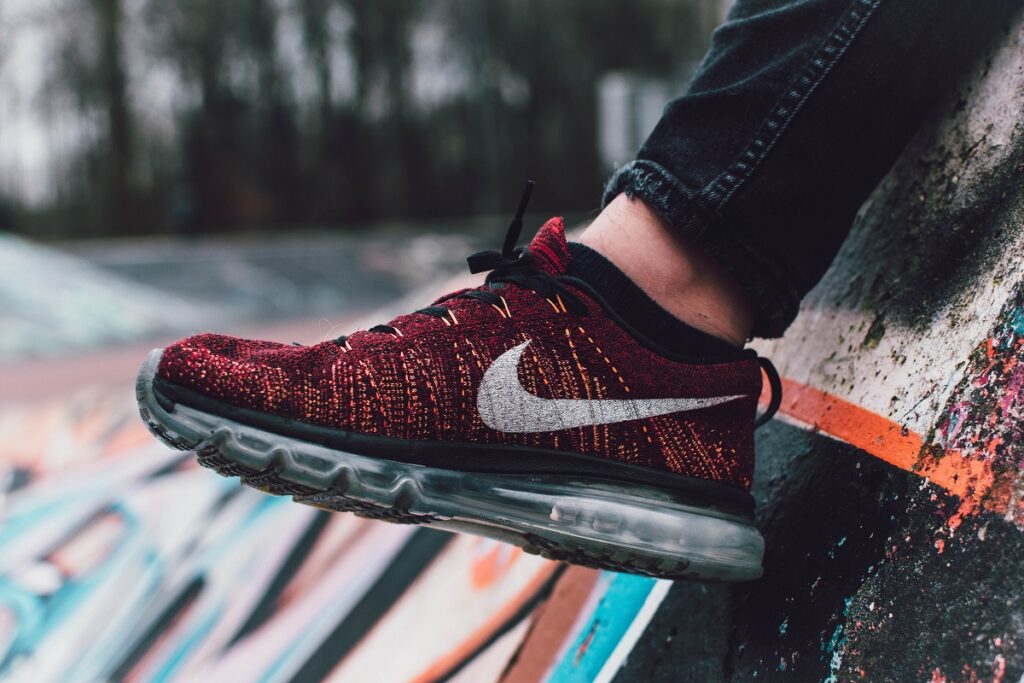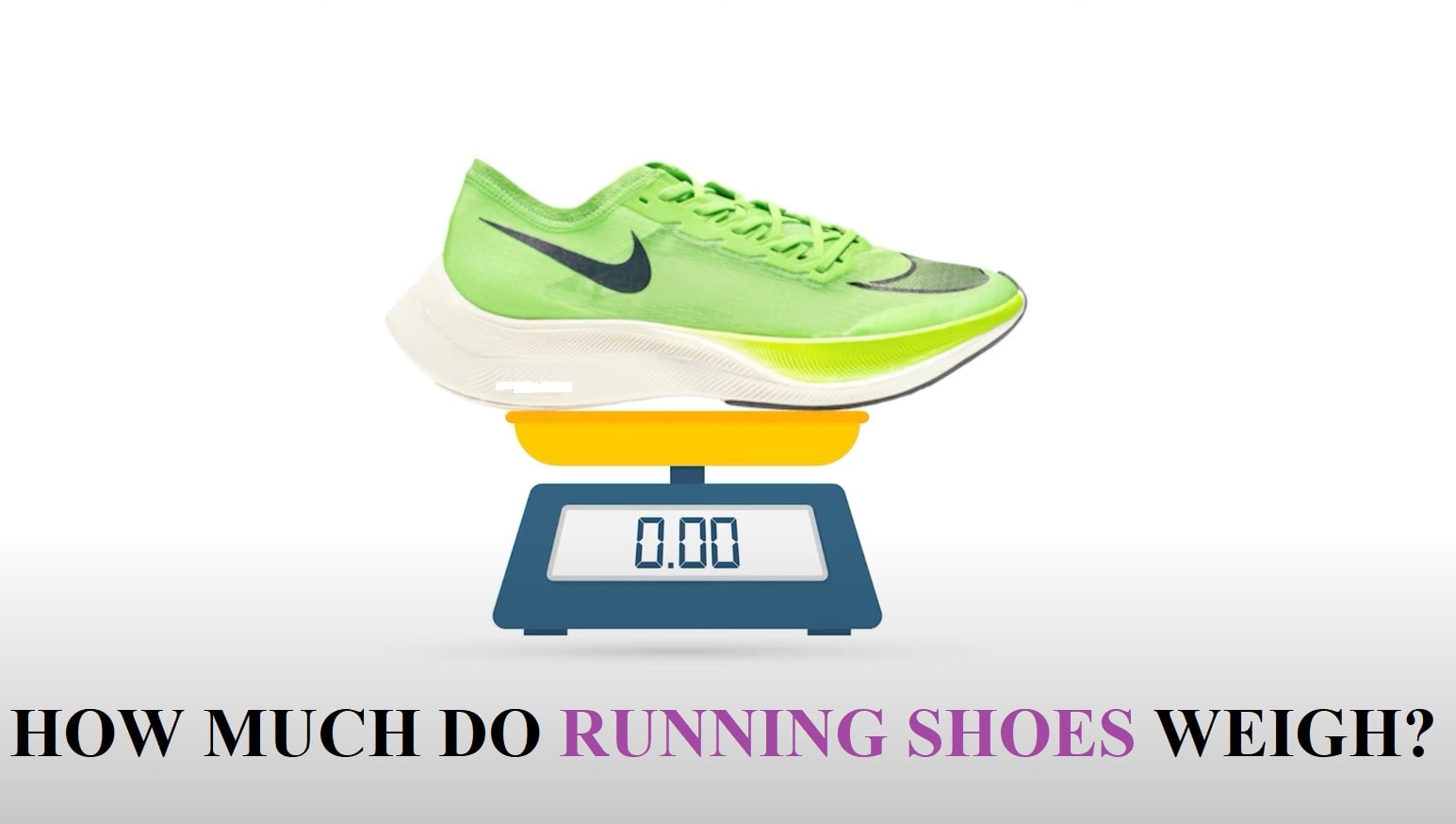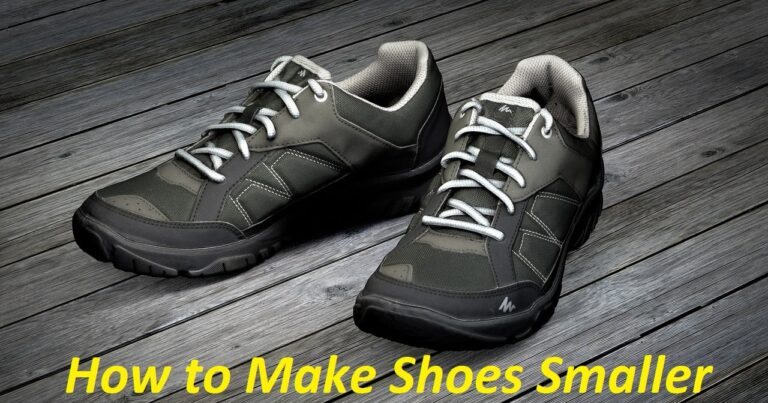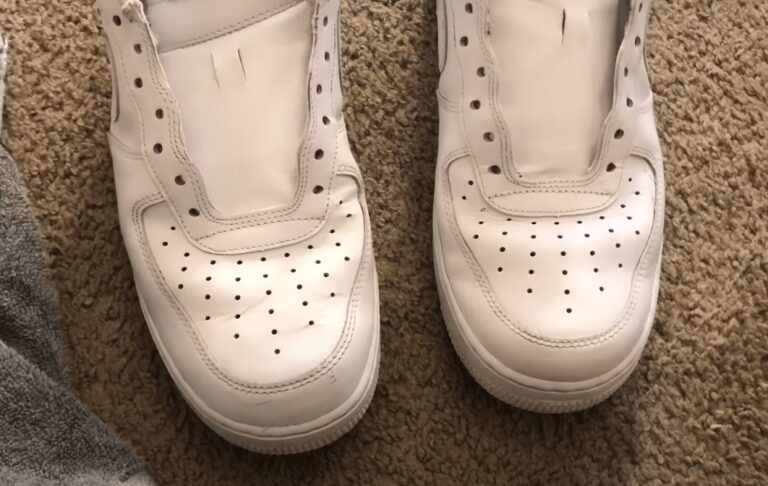How Much Do Running Shoes Weigh?{What You Need to Know}
Do you know how much your running shoes weigh? It may not become a relevant question that comes to mind often, nevertheless the body weight of the footwear make a difference to your operating performance. Whether you’re a seasoned marathon runner or even a beginner just starting, the weight of the footwear can certainly create a significant difference in your general knowledge this is certainly running. Read Also How Shoes Trial Running Shoes Fit?
In short, the weight of running shoes differs with respect to the brand name, model, and dimensions. But, the average weight of the footwear that is running between 8 and 12 ounces (227 and 340 grams) for men’s footwear and between 6 and 10 ounces (170 and 283 grms) for ladies’s footwear. While some runners choose a lighter shoe for increased speed and agility, other people may somewhat choose a more substantial shoe for additional assistance and padding.
If you are wondering the way the fat of one’s jogging shoes can affect your operating experience, or if you’re enthusiastic about finding the footwear that is perfect your individual needs, keep reading. The effect of shoe body weight on running overall performance, and expert recommendations for selecting the right shoe for you personally in this specific article, we are going to explore different facets that subscribe to the weight of jogging shoes. Therefore, lace your footwear up and let’s plunge in.
Why Does Shoe Weight Matter for Runners?
Shoe weigh is really a main factor that runners should consider when selecting the pair that is most readily useful of shoes for running. A runner’s choice of footwear can figure out their particular standard of pleasure and success in running, as well as their health that is overall and.
Whenever choosing suitable form of footwear, one factor that is very important consider is how much the shoes weigh. Heavier running shoes need more energy to operate in and will be uncomfortable if used during long-distance runs or races. Having said that, lightweight jogging shoes supply security while allowing for better agility and speed without wearing out your feet prematurely because of increased influence forces in the sole of one’s feet.
The extra weight of your footwear may also impact your performance by reducing weakness and balance this is certainly increasing that you could preserve correct type during your run. Here are a few things you must know.
Impact on Performance
The weight of athletic shoes may have an effect that is significant a runner’s performance. Lighter shoes might help runners go better and rapidly, which can enhance their overall performance. This really is especially very important to runners who’re training for the battle or looking to boost their private most useful times.
Potential for Injury
The weight of running shoes make a difference a runner also’s danger of damage. Heavier shoes can place stress that is extra a runner’s bones and muscle tissue, which can boost the threat of injury. Choosing lightweight footwear with adequate help can really help reduce the chance of injury and enhance efficiency this is certainly running.
Factors That Affect Running Shoe Weigh

Running shoes are a essential part of any runner’s equipment, while the weight of the shoe may have a impact this is certainly considerable overall performance. Various kinds of athletic shoes have different weights based elements like materials and thickness this is certainly sole Shoes Size. Once you understand just what these aspects tend to be often helps athletes select the footwear that’s right their needs.
Materials
The materials found in running shoes make a difference their weight. Footwear produced from lightweight materials, such as mesh or materials that are artificial are lighter than footwear produced from heavier materials, such as fabric. When working this is certainly choosing, consider the materials used and just how they impact the weight of the shoe.
Sole Thickness
The depth of the footwear that is operating sole may also impact its fat. Thicker soles tend to be more substantial than thinner soles. Nevertheless, thicker soles also can offer padding that is extra help, which is often essential for athletes with certain foot kinds or those running on unequal landscapes.
Shoe Size
The size of a running shoe can also impact its weight. Larger shoes tend to be heavier than smaller shoes. When choosing running shoes, it’s important to choose a size that fits well and provides adequate support.
Understanding the Different Types of Running Shoes
Having the proper footwear is crucial when it comes to jogging. It’s crucial to know which sort of running shoe is most appropriate for your needs because different types of running shoes are made for various uses. All runners should look out for specific aspects when buying a pair of shoes, whether they are seasoned athletes or newcomers.
Cushioned Running Shoes
Running shoes with added cushioning and support benefit runners’ joints and muscles by lessening the impact of running on them. Although they are typically heavier than minimalist running shoes, these shoes can be crucial for runners who require additional support.
Minimalist Running Shoes
Running with minimalist shoes is more natural because they are made to be light and flexible. These shoes are often lighter than cushioned running shoes since they have less support and thinner soles. These might not be appropriate for all runners, though.
Trail Running Shoes
Trail running shoes are made specifically for off-road running and frequently come with added features like greater traction to improve grip on rocky terrain. Although they are often heavier than road running shoes, these shoes can offer crucial support and security to runners over challenging terrain.
How to Choose the Right Running Shoes Based on Weight
A good and injury-free running experience depends on selecting the proper running shoes. The runner’s weight is a key consideration while picking the best pair of shoes. While lighter runners require simplicity and flexibility, heavier runners require greater support and cushioning. You may choose the best running shoe for yourself by understanding the requirements of your body.
Shoes with additional cushioning are helpful for heavier runners since they absorb more impact while exercising on their feet. These shoes are made to offer additional stability and shock absorption, keeping your feet at ease throughout a workout. Since they provide sufficient arch support and help lessen joint pain during lengthy runs, maximalist or neutral cushioned running shoes are typically an excellent option for these types of runners. Here are some additional factors to take into account while selecting the appropriate running shoes for your weight.
Choosing Shoes Based on Your Running Goals
It’s crucial to take your running objectives into account while selecting running shoes. You might want to go with lightweight shoes with few support features if you’re training for a race or trying to beat your personal best times. But, you could want extra supportive shoes if you’re a novice or have a certain type of foot.
Finding the Right Fit
Choosing the appropriate pair of running shoes for you is crucial. Their weight may be affected by shoes that are too small or large, which could lead to pain or damage. Make sure to walk or run around in the shoes you’re trying on to make sure they’re comfortable to wear and offer enough support.
Different Types of Running Shoes and their Weight
Here’s a table of different types of running shoes, their weight range, and their intended purposes:
| Running Shoe Type | Weight Range | Intended Purpose |
|---|---|---|
| Road Running Shoes | 7-11 ounces | Designed for running on pavement or other hard surfaces. Usually lightweight and provide ample cushioning to absorb shock. Suitable for daily training and long-distance running. |
| Trail Running Shoes | 8-13 ounces | Designed for off-road terrain, such as dirt, rocks, and mud. Usually have more rugged soles and offer better stability and traction. Suitable for trail running and hiking. |
| Racing Flats | 4-7 ounces | Designed for speed and performance in races. Usually very lightweight and have minimal cushioning. Suitable for short-distance races and track events. |
| Minimalist Shoes | 2-6 ounces | Designed to mimic barefoot running by providing little to no support or cushioning. Suitable for runners who want to improve their natural running form and strengthen their feet and legs. |
| Maximalist Shoes | 10-16 ounces | Designed with extra cushioning and support for runners who want a softer ride and protection from impact. Suitable for runners with joint pain or those who prefer a plush feel. |
Note: Weight ranges may vary depending on the brand and model of the shoe.
Tips for Reducing the Weight of Your Running Shoes

You may increase your speed and lessen the stress on your feet by running in lighter shoes. Many runners don’t understand that their shoes can be overly heavy for them, which might cause performance to suffer. Here are some suggestions to assist you lighten your running shoes for the best performance.
When choosing a shoe, start by looking for lightweight uppers made of mesh and synthetic materials. These materials will make your running shoes more comfortable without compromising durability because they are substantially lighter than leather or canvas. Also, search for shoes with the least amount of cushioning possible; this will reduce weight without compromising the shoe’s general support. Finally, if you don’t need more arch support, consider wearing shoes with no footbed at all or a minimalistic insole to further lighten the load on your feet while still providing shock absorption for running.
Weight of Different Running Shoes Brands
How much do Nike Free shoes weigh?
Because of their lightweight construction, runners like Nike Free sneakers. Nonetheless, many people are unaware of their real weight. Depending on the size of the shoe, a typical pair of Nike Free running shoes weights between 8 and 9 ounces. They are consequently lighter than the majority of conventional running shoes, which typically weigh between 12 and 15 ounces per pair.
Traditional running shoes typically weigh more because of elements like cushioning and stability technology. These characteristics are absent from the low-profile midsole composition of the Nike Free, which enables a significant reduction in overall weight without compromising support for the runner’s foot. Nike Free running shoes are an excellent alternative for individuals seeking a very light option that still offers sufficient support and comfort.
What is the weight of Adidas shoes?
The type of shoe and size affect the weight of Adidas shoes. Running shoes typically weigh between 7 and 12 ounces, depending on the size. A men’s size 9 would normally weigh 10 to 11 ounces, for instance. Basketball shoes are often heavier; a men’s size 9 pair weighs about 13 to 15 ounces on average. Running shoes tend to be lighter than soccer cleats, which weigh 11 to 14 ounces on average for a men’s size 9. Depending on the design and materials employed in the shoe’s production, the precise weight will change.
What is the weight of Asics shoes?
What is the weight of Asics running shoes, which are a popular option for both runners and fitness enthusiasts? To perform at your best during a race or training session, it can be crucial to know the weight of your running shoes. To assist you in choosing the pair of Asics running shoes that best meets your demands, we will now go over the various weights available.
Depending on the style and size, men’s Asics running shoes typically weigh between 10 and 12 ounces. Men’s road racing flats can be as light as 6 ounces, although trail variants often weigh closer to 13 ounces on average. Women’s trail models often weigh between 11 and 13 ounces, but women’s road racing flats normally weigh between 7 and 10 ounces.
How much do Puma running shoes weigh?
Both runners and athletes frequently use Puma running shoes. But how much do they weigh in actuality? Puma running shoes come in a variety of weights and designs, but on average, a pair weighs about 10 ounces (283 grammes). When compared to other brands on the market, this makes them incredibly lightweight.
Weight and substance are crucial considerations when choosing the best pair of shoes for you. With these factors in mind, Puma created a line of running shoes that use breathable air-mesh uppers and lightweight materials like synthetic suede overlays to reduce total weight without sacrificing performance or durability. Hence, Puma can be exactly what you need if you’re seeking for a lightweight sneaker that won’t break the bank.
What is the weight of Reebok shoes?
There are many different styles, shapes, and sizes of Reebok shoes. The weight of Reebok shoes can vary significantly depending on the style of shoe, which is something that many people are unaware of. You may choose shoes wisely when you shop if you are aware of the precise weight of your Reebok sneakers.
A Reebok shoe’s weight is mostly influenced by its design and material mix. Because they are made more for performance than for protection or style, athletic sneakers are often lighter than work boots or dress shoes. For instance, trekking boots may weigh nearly two pounds each shoe whereas running shoes may only weigh seven ounces. Comparatively to shoes produced with conventional leather or other lightweight materials like canvas or mesh, some materials, like synthetic leathers, will also add more weight to a shoe model.
Conclusion:
When it comes to running shoes, the weight of the shoes can play a bigger role than you might think. Whether you’re a beginner runner or a seasoned athlete, it’s important to understand how shoe weight can impact your performance and injury risk. By considering the factors that influence shoe weight and choosing the right shoes
FAQs
Q: How much do running shoes weigh on average?
A: The style, design, and materials utilised can have a significant impact on the weight of running shoes. Running shoes typically weigh between 7 and 12 ounces.
Q: How much do running shoes weigh in kg?
A: Depending on the style and size of shoe, the weight of running shoes might vary significantly. A men’s size 9 running shoe will typically weigh between 250 and 350 grammes (0.25-0.35 kg). Running shoes for women often weigh between 200 and 300 grammes less than those for men (0.2-0.3 kg).
The materials that were used to make a pair of running shoes might also affect how much weight they actually have. For instance, shoes with greater support or padding may weigh more than those with less. Moreover, some brands could employ heavier materials than others, which might result in weight variations between two pairs of shoes that are the same size and design.
Overall, depending on the style and size of shoe as well as the materials used in their manufacturing, the precise weight of a pair of running shoes can vary considerably.
Q: What is the lightest running shoe?
A: At the moment, the Nike ZoomX Vaporfly Next%, which weighs only 6.6 ounces, is the lightest running shoe available.
Q: Does shoe weight really matter for running?
A: Indeed, the weight of your running shoes can have a big impact on how well you do and how likely you are to get hurt. While lighter shoes might boost running efficiency and lessen physical stress on the body, heavier shoes can increase tiredness and impact forces.







